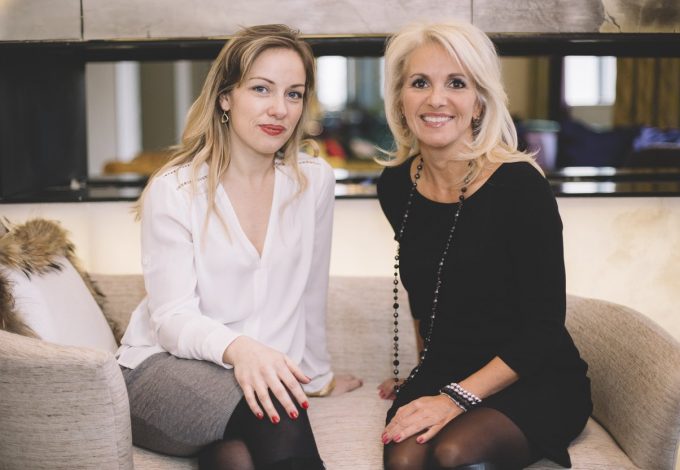HELPING THOSE WHO HELP EVERY DAY — L’Appui pour les proches aidants is an organization aimed at promoting the emergence of a social consciousness favourable to caregivers and improving their quality of life. The organization offers multiple services, including the Caregiver Support Helpline, which is aimed at caregivers and those around them, as well as stakeholders and healthcare professionals. The Caregiver Support Helpline is a free and confidential service where trained counsellors offer support over the phone, email assistance, information, and redirection to appropriate resources as needed. In short, tools to help caregivers perform their roles while taking care of them.

What can you tell us about caregiving? How does this role emerge in someone’s life?
“A caregiver provides care and services to a loved one in a free and non-organized way, whether they are a family member, parent, friend, or neighbour. Anyone who supports someone in a vulnerable position or who is sick or suffering from a mental health, physical health, or addiction problem is a caregiver.
“It’s quite rare for people to see themselves as caregivers at the start of their journey. They tell themselves that it’s normal to take care of a loved one, and that they don’t deserve a special title because of it. We also conducted a study in 2016, and 20% of people who devoted 10 or more hours per week to a loved one didn’t recognize themselves in the role of a caregiver. At the Caregiver Support Helpline, we realize that people contact us when they have been caregivers for several years and are just starting to accept this, and—exhausted—they are thinking about asking for help.
“Most of the time, we become caregivers gradually, as we do with an elderly person who is slowly losing their autonomy. The role of a caregiver is therefore rarely obvious on the first day. You can also be a ‘passing-through’ caregiver in the life of someone who will subsequently recover, such as for someone suffering from a mental health problem like depression.”
In what state of mind are the caregivers who reach out for help?
“In addition to exhaustion, which is present in almost all cases, we often notice that caregivers feel helpless when faced with the progression of the disease, medical choices that the person being cared for is making for themselves, and conflicts between family members over certain issues. The emotional weight that comes with a situation where there is no way out and the person has no influence on what is going on is immense. Unfortunately, we can’t just wave a magic wand. However, we always try to consider events in their entirety, analyze all aspects of the problem in order to give the loved one as much power as possible, and ensure that they are equipped to act in the best possible way on the things that they can control.
Guilt, which leads to a kind of inner confrontation in the caregiver, is also often observed. Setting boundaries generates guilt in the caregiver, because they fear the impact that prioritizing their own well-being could have on the loved one if they devote less time and provide less care to them.”
How can you support a caregiver in their role?
“First of all, notice everything the person does: recognition is essential. Next, it’s important to take care of them. You can ask them how they are doing, how they are experiencing the situation, and initiate a discussion. Many caregivers don’t necessarily open up to their friends or families about their reality for fear of weighing down their relationships, creating discomfort, or placing their burden on those they love, so showing them our openness and attentiveness can be very valuable.”
Are there also positive sides despite the hardships?
“Of course! It’s not uncommon for caregiving to change the relationship between the caregiver and the person being cared for. A vulnerability is revealed, as well as an intimacy, where we discover new facets of the person we thought we knew. A purer form of needs and emotions emerges, and this often gives rise to very beautiful exchanges. The caregiver may also discover strengths and skills, particularly in terms of organization and communication. An affinity and a trust may develop, not just between the caregiver and the person being cared for, but also within the family, where the members who help each other may form stronger ties.”
Can L’Appui provide assistance to any caregiver, regardless of their needs and those of the person being cared for?
“Yes. We deal with organizations across Quebec, which often don’t serve the entire province, so depending on where the person calling lives, the resources that we offer them will be different. We have a directory of resources, also accessible to the public, which allows us to find the ones that best meet the needs that the person expresses to us, and those we observe during the call. Among the services that people may seek out, I’m thinking among other things of respite, stimulation workshops at day centres or at home for people suffering from Alzheimer’s, help with bathing at home, and individual or group support. Since each situation is different, the variety of requests we may receive is very wide.”
Equipping yourself in three phases: Where to start to fulfill your role as a caregiver without forgetting yourself
Question yourself regarding your limits: When we start to give time and care to a loved one, we often tell ourselves that we will do so until we are no longer capable. But after a few years, a load that we carried before may become too heavy. We are entitled to rethink our limits, which may change with time and circumstances.
Educate yourself about the disease: To prepare for what is to come.
Inform yourself about the available resources: CLSCs, at-home support services for the person being cared for, individual support groups or sessions that assist caregivers, etc. Familiarizing yourself with the resources to know who to turn to and how to proceed when you need it allows you to feel prepared and supported and will help you adopt the right reflexes when the time comes.







